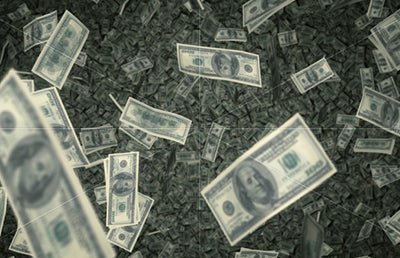What is Money?: Ole Bjerg on This Is Hell


The latest economic collapse has incited substantial conversation on the left about debt, financialization, and the commodification of everyday life. But what exactly is money? In his new book, Making Money: The Philosophy of Crisis Capitalism, Ole Bjerg explores the philosophies undergirding this bedrock of capitalism.
In a recent interview with This is Hell—"the kind of interview you will hear on NPR’s Marketplace after the revolution"—Bjerg discusses some of the main ideas in his book. He begins by explaining the limits of orthodox economics' ability to understand money:
When you start asking this question, where money comes from, then it turns out models that you built to predict [money] don't really work. They become less efficient because in order for these models to work, they have to block out this very fundamental question... Most economics is about controlling things rather than asking fundamental questions.
One of the ways that money continues to hold such power, Bjerg argues, is that most people don't actually understand where it comes from. Here, Bjerg busts the common myth that money is something created by the government:
Most people think money comes from the state, but that's not true for most money in our economy. Most of the money in our economy is electronic credit money. And they come into the world when banks create credit. So in fact what we have is a situation where we have privatized the very creation of money.To close out the interview, host Chuck Mertz asks whether or not society relies on the existence of debt:
I don't think we can have a society or an economy without debt. I think we can have debt in a good way. Another thing I'd like people to think about is that debt shouldn't be just an economic phenomenon, it should equally also be a moral phenomen.... We are very bad about forgiving debt today. We should start thinking about debt as a multi-dimensional phenomenon, which would also point to new solutions for this, one of which would also be major debt redemption.